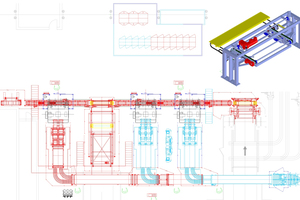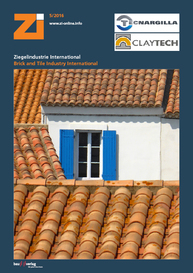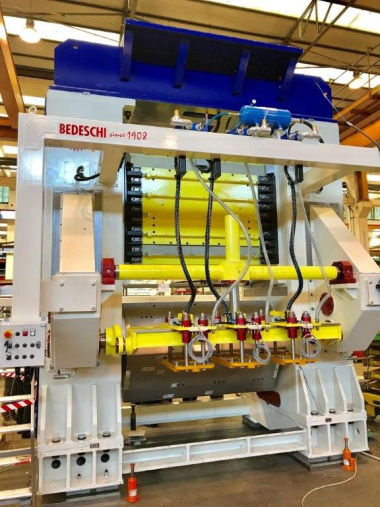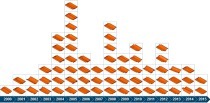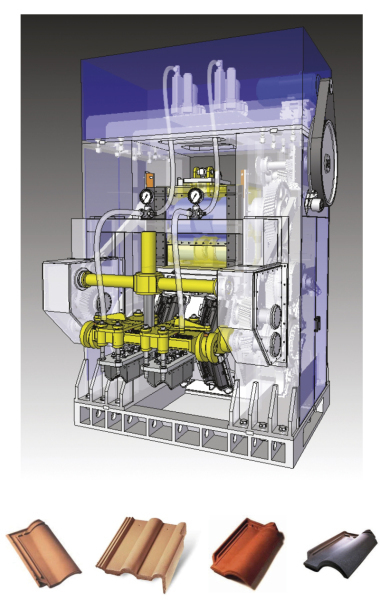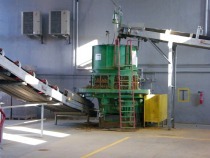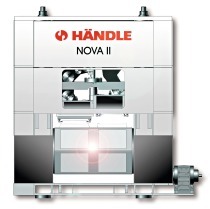Mazzaron Teja goes for flexibility and efficiency
Maximum manufacturing flexibility as regards mould changeovers, product handling with practically zero wear and advanced solutions to recover the kinetic energy in the press and so provide considerable savings in energy consumption – these are the distinctive characteristics of the new production line installed by Spanish firm Mazzaron Teja.
The Spanish clay roofing tile plant in Numancia de la Sagra (Province of Toledo) has been upgraded with plant solutions from Sacmi Heavy Clay. The core of this order consists of solutions for the pressing department in which the two existing presses have been joined by a third press with two moulds, specially configured for smooth integration with the existing dryer loading/unloading system. The new RAT drying platform control system has a high output capacity of 6 000 roofing tiles per hour. The line can be managed to ensure maximum production flexibility from the point of view of both size changeover and mould replacement. Moreover, the ability to operate with one, two or three presses simultaneously lets operators carry out work on machines in absolute safety without any need to shut down the line.
The platform conveying system, now equipped with highly wear-resistant straps with a strong grip on the metal frame, has also been made much more efficient, minimizing frame-strap chafing and, therefore, practically eliminating wear on the belt itself. Moreover, even lower maintenance costs have been achieved thanks to the new Siemens S7 1 500 PLC automation control system, a technology that does away with the use of mechanical manoeuvring components and allows Profinet control of all drives.
Thanks to the wide production flexibility, combined with the outstanding levels of plant engineering safety and reliability as well as excellent efficiency places this Spanish manufacturer at the very pinnacle of roofing tile manufacturing. Substantial energy savings have been obtained thanks to the innovative regenerative inverter installed on the press control. The latter recovers kinetic energy during motor braking so that energy, instead of being wasted as heat, is converted back to electricity; this gives press operation savings in the order of 16 kW/h.
Sacmi Imola S.c.r.l.
www.sacmiheavyclay.com

